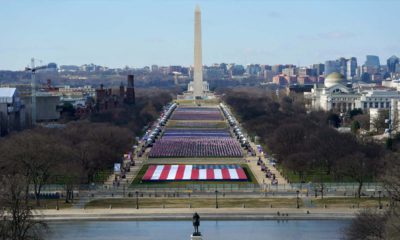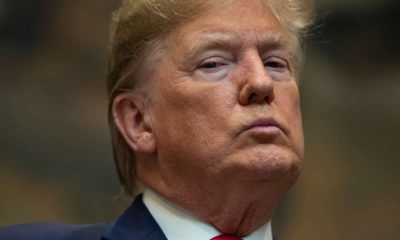Published
7 years agoon

President Donald Trump is once again indicating he may withdraw from an international agreement designed to curb Iran’s nuclear weapons ambitions.
“My view is… that he will get rid of this deal on his own, for domestic reasons,” said French President Emmanuel Macron at the end of a three-day state visit to the U.S.
France is a party to the agreement between Iran, the United States and four other nations. Macron has tried to convince Trump to stay in. But the president has continued to criticize the deal and has to decide by May 12 whether or not the U.S. will withdraw and reimpose sanctions. That action could lead to the deal’s collapse.
Saudi Arabia, Iran’s neighbor and regional rival, would likely applaud such an outcome.

Madawi al-Rasheed
As historian Madawi al-Rasheed says, in an April 23 opinion piece in the New York Times:
“Any rapprochement between the United States and Iran — such as the nuclear agreement under President Obama — is viewed with intense suspicion and fear as it threatens the Saudi position as the leading American client in the region.”
Al-Rasheed is a visiting professor at the London School of Economics and is the editor of “Salman’s Legacy: The Dilemmas of a New Era in Saudi Arabia.
She says the reimposition of sanctions would, in the Saudi view, constrain Iran’s influence across the Middle East. “The Kingdom seeks the shrinking, even the collapse, of the Iranian economy under sanctions,” she says.
The hostility toward Iran by the Saudi government, under its powerful crown prince Mohammed bin Salman, is being driven primarily by domestic politics. “Prince Mohammed knows that a fearful enemy is a key to his own strength,” al-Rasheed says. “The crown prince has used the rivalry with Tehran to deflect attention from the complexity of his own domestic uncertainties.”
Saudi Arabia is facing numerous internal challenges, from political grievances over the methods used by Prince Mohammed to consolidate power, to inequality and unemployment among the country’s youth.
“He rubs out the criticism of his domestic policies by reminding the marginalized royals and the commoners that he is fighting an existential threat from expansionist Iran,” according to al-Rasheed.
Saudi Arabia also seeks to maintain its economic superiority over its neighbors, she notes. The reimposition of sanctions by the United States, and possibly the United Nations, limit economic competition from Iran.
“For domestic reasons, Saudi Arabia is fundamentally trying to mitigate the possibility of the reintegration of Iran in the global community,” al-Rasheed says. “The conflict between the two countries will dissipate only if the domestic uncertainties subside or fade away.”
Read What Fuels the Saudi Rivalry With Iran? at the New York Times.
Randy Reed is a writer and content producer for GV Wire. He has experience reporting for local radio stations and newspapers. In addition, he an extensive background in video production focused on news and documentary subjects. Reed is a proud graduate of California State University, Fresno with a degree in Mass Communications. In his free time, Reed enjoys digital photography as a hobby and loves to explore the scenic beauty of our Valley’s three spectacular National Parks. You can contact Randy at 559-705-2107 or at rreed@gvwire.com.



No-Go for Joe Exotic: Trump Pardon List Omits ‘Tiger King’


Trump Pardons Ex-Strategist Steve Bannon, Dozens of Others


Long Shot? Capitol Rioters Hold Out Hope for a Trump Pardon


‘Shameful’: US Virus Deaths Top 400k as Trump Leaves Office


Bill McEwen: Five Steps to Heal America Under Biden


Federal Court Strikes Down Major Trump Climate Rollback



